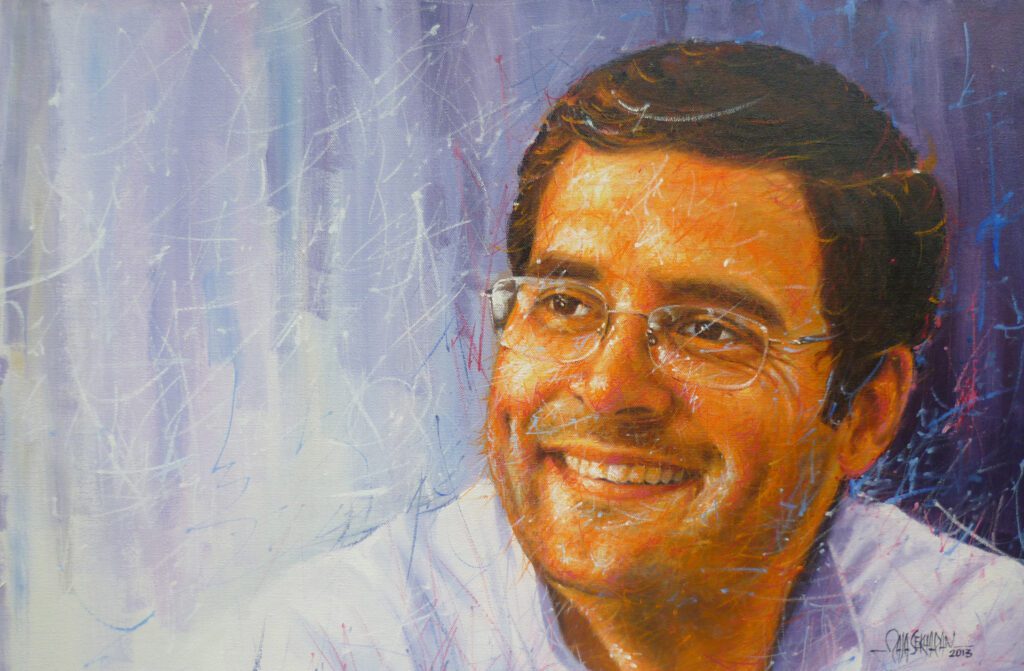
Rahul Gandhi will usher in the no confidence motion on behalf of the government while the government has named five ministers Amit Shah, Smriti Irani, Nirmala Sitharaman Kiren Rijiju and Jyotiraditya Scindia. Other BJP MPs are also likely to debate.
The upcoming no-confidence debate stands as a culmination of the intense political discourse that has characterized the monsoon session of Parliament. With Rahul Gandhi leading the charge against the Modi government, the stage is set for a heated exchange of ideas, perspectives, and allegations.
Despite the prevailing belief that the no-confidence motion is bound to fail, its significance can not be underestimated. The motion serves as an opportunity for the Opposition to voice their concerns, critique government policies, and hold the ruling party accountable. It is a manifestation of the democratic process at work, allowing dissenting voices to be heard on a national stage. It is a mechanism to draw national attention to the violence in Manipur and get the government to respond to it.
Ever since the ethnic clashes began between the majority Meitei group and the minority Kuki group, more than 150 have died and thousands displaced.
Challenging the Government Narrative
The Opposition’s persistent demand for a discussion on Manipur speaks volumes about their determination to spotlight pressing issues that they believe demand the Prime Minister’s attention. The ongoing violence and turmoil in Manipur have captured the nation’s attention, and the Opposition’s call for accountability and transparency is rooted in their commitment to the welfare of the citizens affected by the unrest.
While the government contends that there is no precedent mandating the Prime Minister’s statement, the Opposition counters with the urgency of the situation at hand. The crux of the matter lies in whether parliamentary proceedings should strictly adhere to precedents or adapt to address the exigencies of the present moment.
Oppposition has long since been demanding that the Prime Minister address the Manipur violence issue where as the BJP has always maintained that it is ready to address the issue in the Parliament but the Prime Minister shall not speak on the issue.
A Test of Eloquence and Conviction
The upcoming debate is not merely a political exercise; it is a test of rhetorical prowess, logical reasoning, and the ability to sway public opinion. As speakers from both sides articulate their positions, they will be judged not only by their political allies but by the nation at large. Their words have the power to shape perceptions and influence public sentiment, thus underscoring the gravity of their role in this democratic spectacle.
The diversity of perspectives within the Parliament adds to the richness of the discourse. With each speaker representing a distinct constituency and viewpoint, the debate is a microcosm of the diverse tapestry that constitutes the Indian polity. It is a reminder that the essence of democracy lies in the harmonious coexistence of disparate voices.
Game of numbers
It is worth mentioning here that this is the second time that BJP government is facing no confidence motion since it came to power in 2014. The first time , it was initiated by Chandra babu Naidu and the government had defeated the motion with 325 votes against the motion and only 126 favoured it.
This time too , numbers sway heavily in the favor of the government. It has a majority of 270 and with Odisha’s Biju Janta Dal and Andhra Pradesh’s YSR Congress , the number soars to 366 .Whereas the opposition has only 142 members.
The Aftermath and Beyond
As the no-confidence debate concludes, its impact will reverberate beyond the confines of the Parliament chamber. The discussions, arguments, and revelations will continue to be dissected by media, analysts, and the public. While the immediate outcome of the motion may be predictable, the enduring influence of the discourse on public opinion and the political landscape cannot be underestimated.
In conclusion, the no-confidence motion against the Modi government serves as an embodiment of democratic principles, where differing viewpoints clash in a spirited exchange of ideas. Rahul Gandhi’s reinstatement and his pivotal role in this debate underscore the intricate interplay of law, politics, and public sentiment. As the nation watches with bated breath, the forthcoming debate promises to be a microcosm of the vibrant democratic spirit that defines India’s political landscape.
FAQs about the No-Confidence Debate
- What is a no-confidence motion? A no-confidence motion is a parliamentary procedure where members of the legislative body express their lack of confidence in the government’s performance and policies.
- Why is the no-confidence debate significant? The debate provides an opportunity for the Opposition to challenge the government’s actions, demand accountability, and express concerns on pressing issues.
- What is the likely outcome of the no-confidence motion? While the motion is unlikely to pass, its importance lies in its capacity to spotlight critical issues and engage in robust political discourse.
- Why is the Manipur situation at the forefront of the debate? The ongoing violence and unrest in Manipur have been a focal point of the monsoon session, prompting the Opposition to demand accountability and transparency from the government.
- What is the role of parliamentary sessions in lawmaking? Parliamentary sessions provide a forum for lawmakers to deliberate, debate, and pass legislation, ensuring a participatory democratic process.
- How do speeches during the debate influence public sentiment? The speeches made during the debate can shape public opinion and influence the national discourse, thus playing a crucial role in the democratic process.
- What is the broader significance of the debate beyond its immediate outcome? The debate’s impact extends beyond the parliamentary chamber, resonating with the media, analysts, and the public, ultimately shaping political narratives.
- What does Rahul Gandhi’s reinstatement symbolize in the debate? Rahul Gandhi’s reinstatement highlights the interplay of legal decisions, politics, and public representation, contributing to the overall complexity of the debate.







